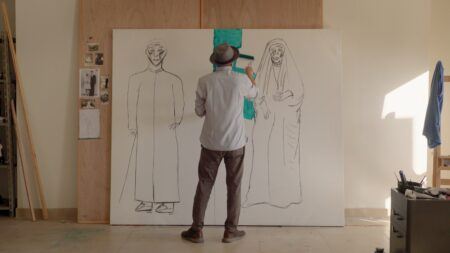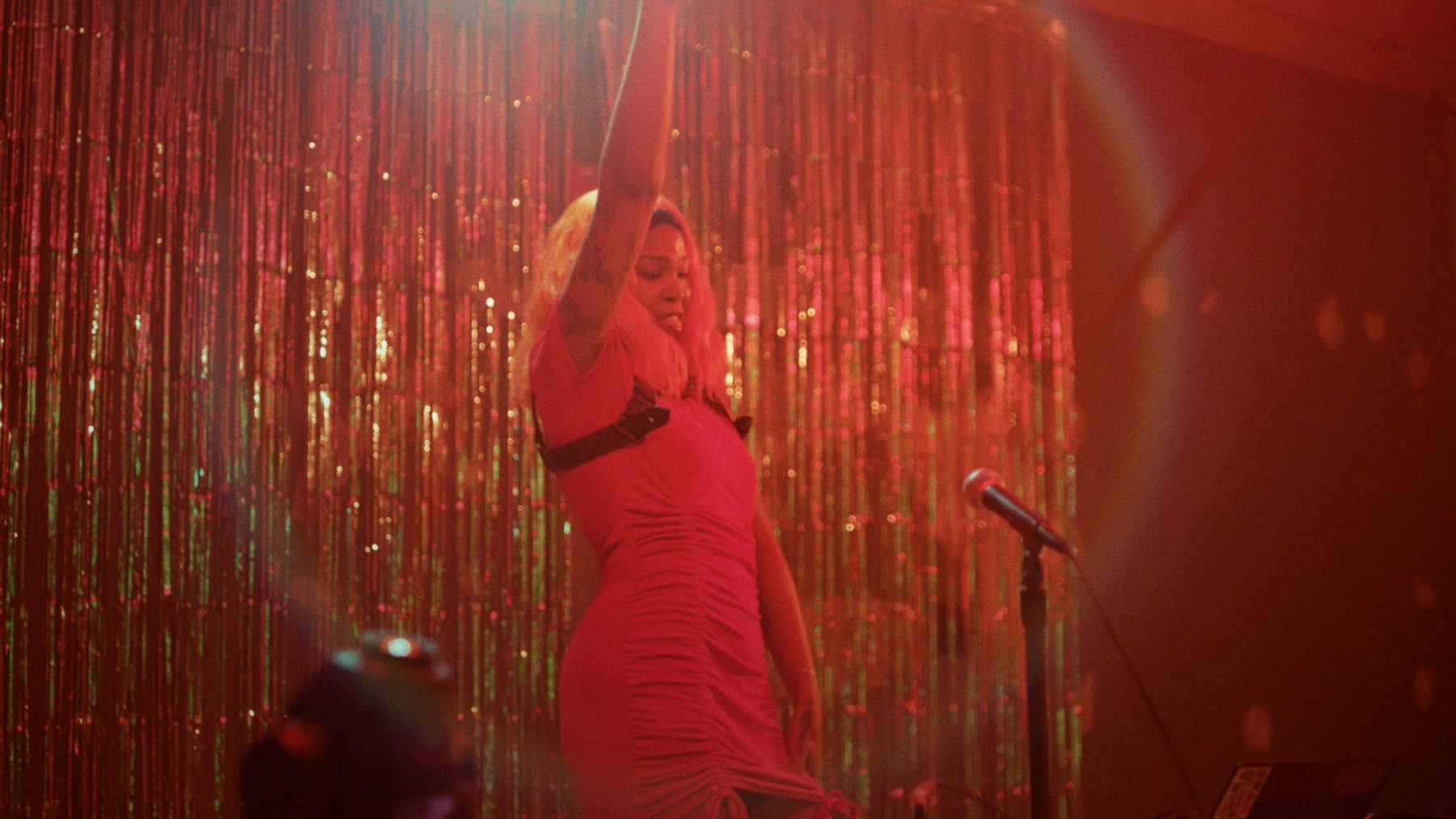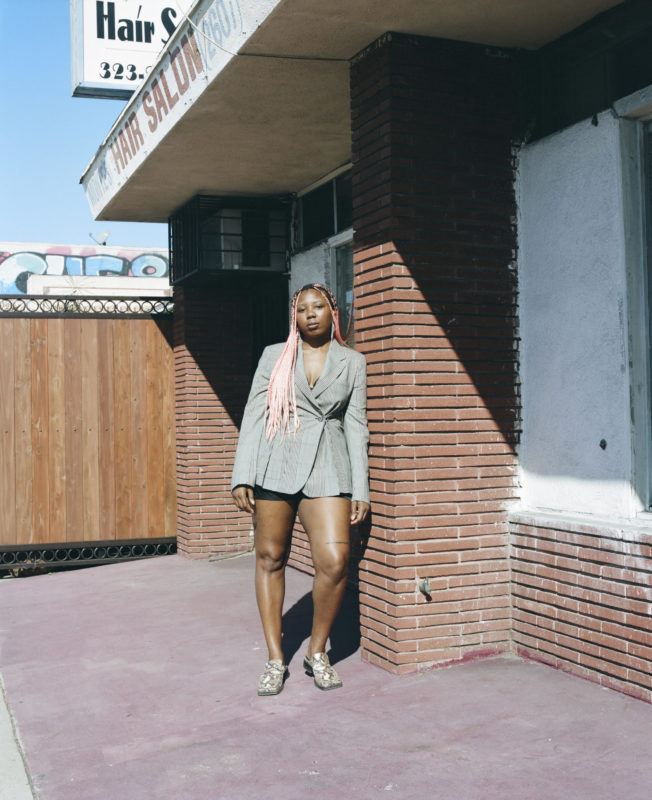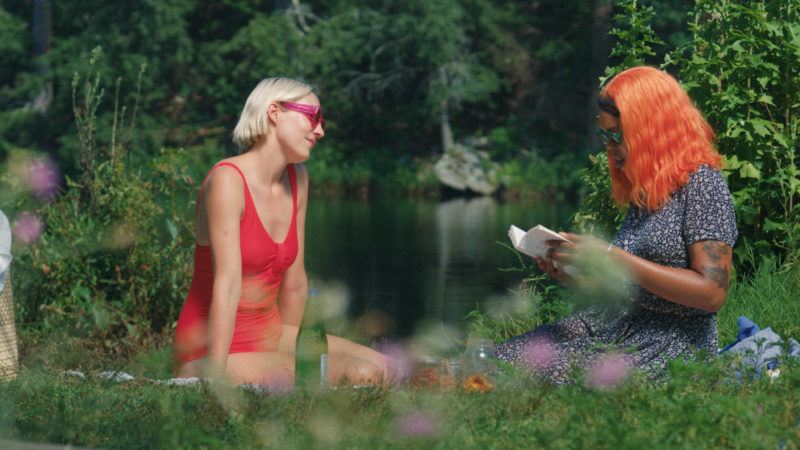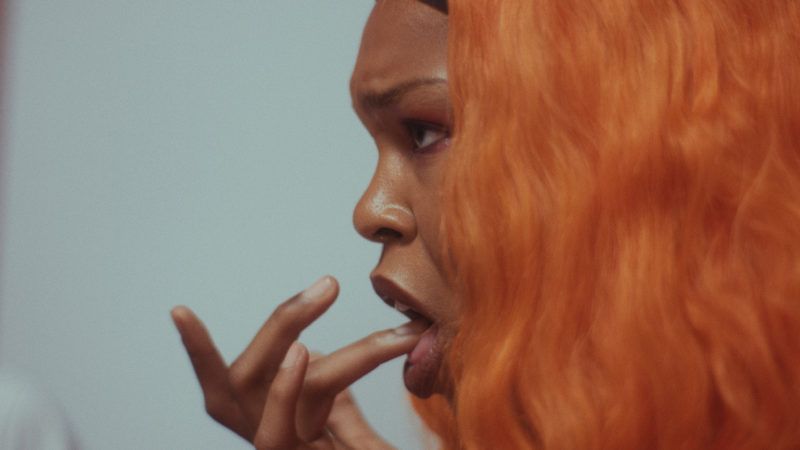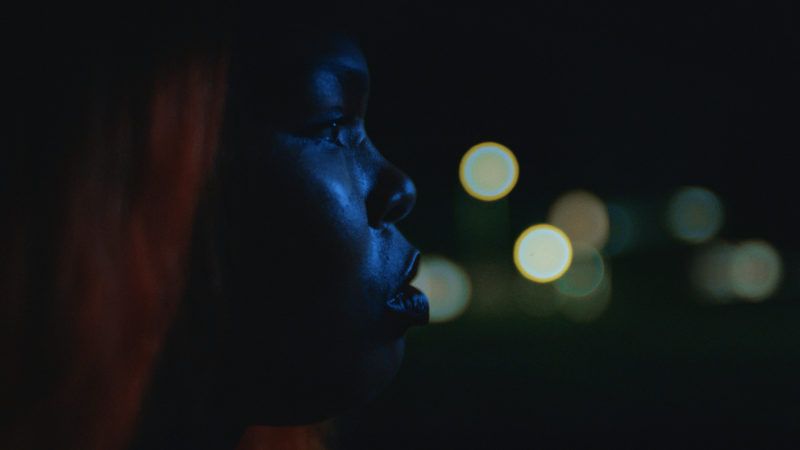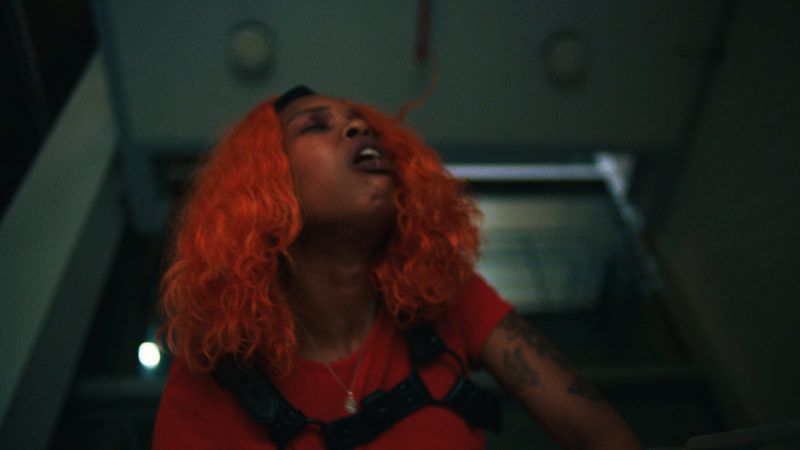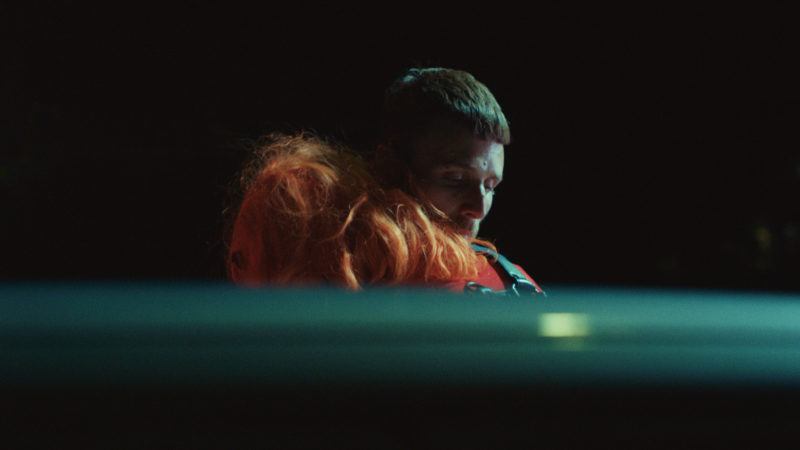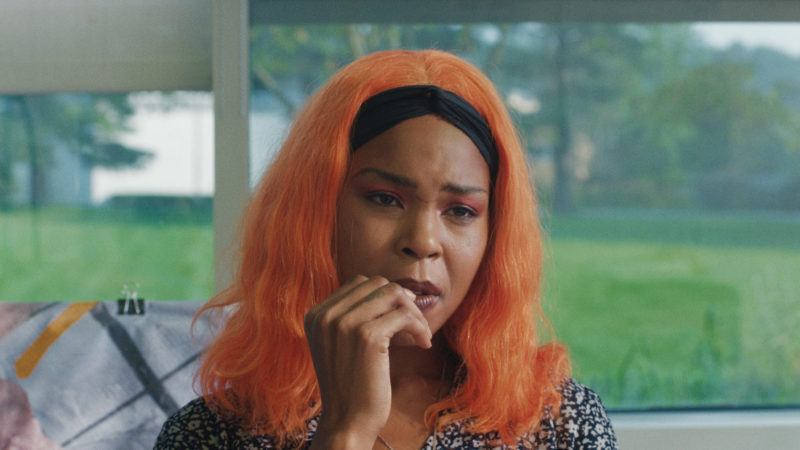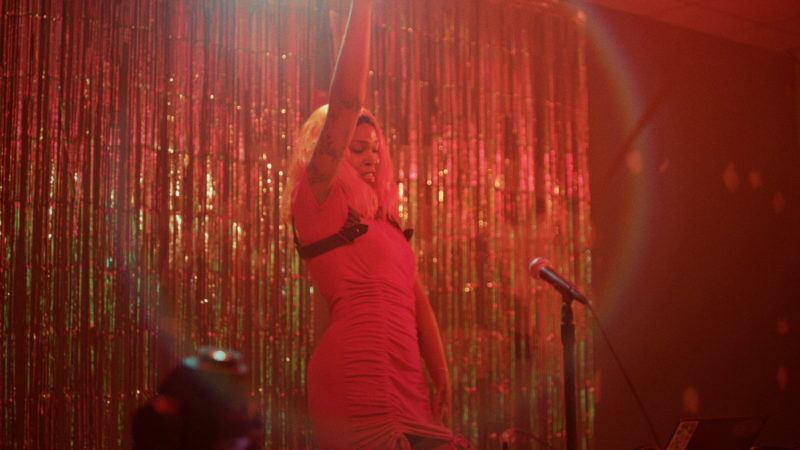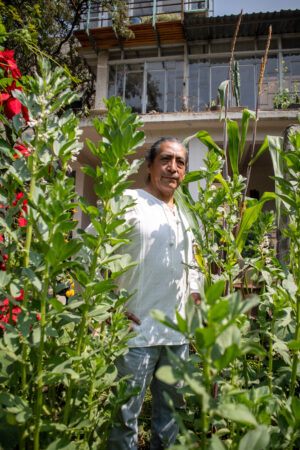Martine Syms – The African Desperate follows Palace Bryant during her last day of grad school, starting with her Master of Fine Arts (MFA) review board in upstate New York and ending with her back in Chicago. In some ways, it’s very much a comedy—deadpan, which is my sense of humor. At the same time, there’s a real melancholy that’s reflective of both my and Rocket’s1 experience in MFA programs and that of our friends. It was very bittersweet for me. The film is somewhat about the loss that comes with participation in the art world, and how community is a way of getting through it, of getting free or at least finding some kind of freedom. But that freedom might come by going through a kind of underworld. I was thinking a lot about the myth of Persephone when making this.
Samantha Ozer – In addition to bittersweetness, there is a certain nostalgia and unfulfillment that occurs. The whole film is a build-up to a graduation and a celebration, a moment that never seems to peak. An unsatisfaction.
Definitely. There’s no arrival. I always thought that at some point I’m going to get “on the other side” of whatever my goals are—whether it’s accomplishments or a degree, etc. We all set these external markers and I’ve found that when those moments happen it doesn’t feel like anything. I’ve found it liberating to recognize that there isn’t a moment when you arrive at something special. My keywords for the film were incongruity, paradox, and transformation. In life, when you accept the paradox of things change is able to happen. Incongruity has been my experience with a lot of things, especially in the past few years, and feeling a kind of cognitive dissonance and rage.
The art world can have so many external and often constructed legitimizing factors—MFA’s being a primary one. Was there ever a moment when you were like ok, now “I’m an artist?”
I always made art and was participating in art communities from a really young age, so I never had that moment because it was just something I always did. It’s a part of my world. Though, I didn’t have a conception of the art world until I was more of a teenager. In art school, no one was making anything how I was, which at that age felt like a bad thing. I had a few teachers who were very supportive and helped me, but I also felt isolated by several things, one of them being that there were very few black people. There was not a lot of conversation and there wasn’t a lot of precedent. So Golden Age2 became my education and a place to find and create belonging. If anything, any sense I had of not being an artist was because I was made to feel like there was no place for me or what I was thinking about at school.
I wanted to center the film on an MFA program because everyone is so interested in the art world right now— Frieze L.A. felt like a new Coachella for non-art friends—and I want to give them a taste. While MFA programs are a time of vulnerability, they are microcosms of the larger art world, which is just another microcosm of the world. So it has all the same structural issues and inequities, but it plays out on an interpersonal level.
The art world operates with a sense of assumed morality, and even being more ethical than the “world” or I guess other industries, when in reality many uneven positions of power converge here.
I like the premise of grad school but it is entirely a lie. As an educator and someone who’s really interested in an intellectual community, I’ll say that all of higher education is built on this fallacy that we are all equal and we’re all starting at the same point. I wanted to keep the film in a program because it keeps insisting that we’re all in this together. We’re all here. We’re all doing this. Even though everybody’s on a completely different journey. I find higher education really difficult because if we could actually talk about the inequalities, it might be a better experience, but instead it gets obscured or comes out in these weird ways.
This weirdness in the relationship with Palace’s professors comes out immediately in her board review, which turns into this incredibly awkward moment where two of the professors critique each other and then the review abruptly ends. Towards the end of the film, there is a sex scene that continues this feeling of build-up without resolution. Palace basically fists her love interest’s throat and then stops, without climax or transition but with power.
I wanted the character to be somebody who’s always trying to be in control. So some part of it is containment and containment of her life. As someone who has anaphylactic allergies, throwing up is a big part of my life, and gag as a phrase becomes an essence of the film. In every scene, someone is “gagged” in one way or another—whether it’s restricted use of their mouth and they are being prevented from expressing something, whether something’s being held open, whether it’s a joke, or it’s choking or retching, whether it’s moments when you’re gagged and you can’t endure it—you can’t fucking take it. A gag is involuntary. There is this tonal quality of the sensation of the spasm and the restriction—of the way it feels when you’re about to throw up—in every scene.
This film addresses the lore about grad school and shows how it’s really an extreme space with a lot of people coping. While everyone copes in different ways, in my life experience as a black femme, I usually can’t fully express myself without being penalized in some way. And so there is a kind of containment that I was taught to function in elite spaces—a release and then restriction. For the character, the release is out of her control but then she tries to clamp back down on it and this becomes a driver of her actions and decisions.
